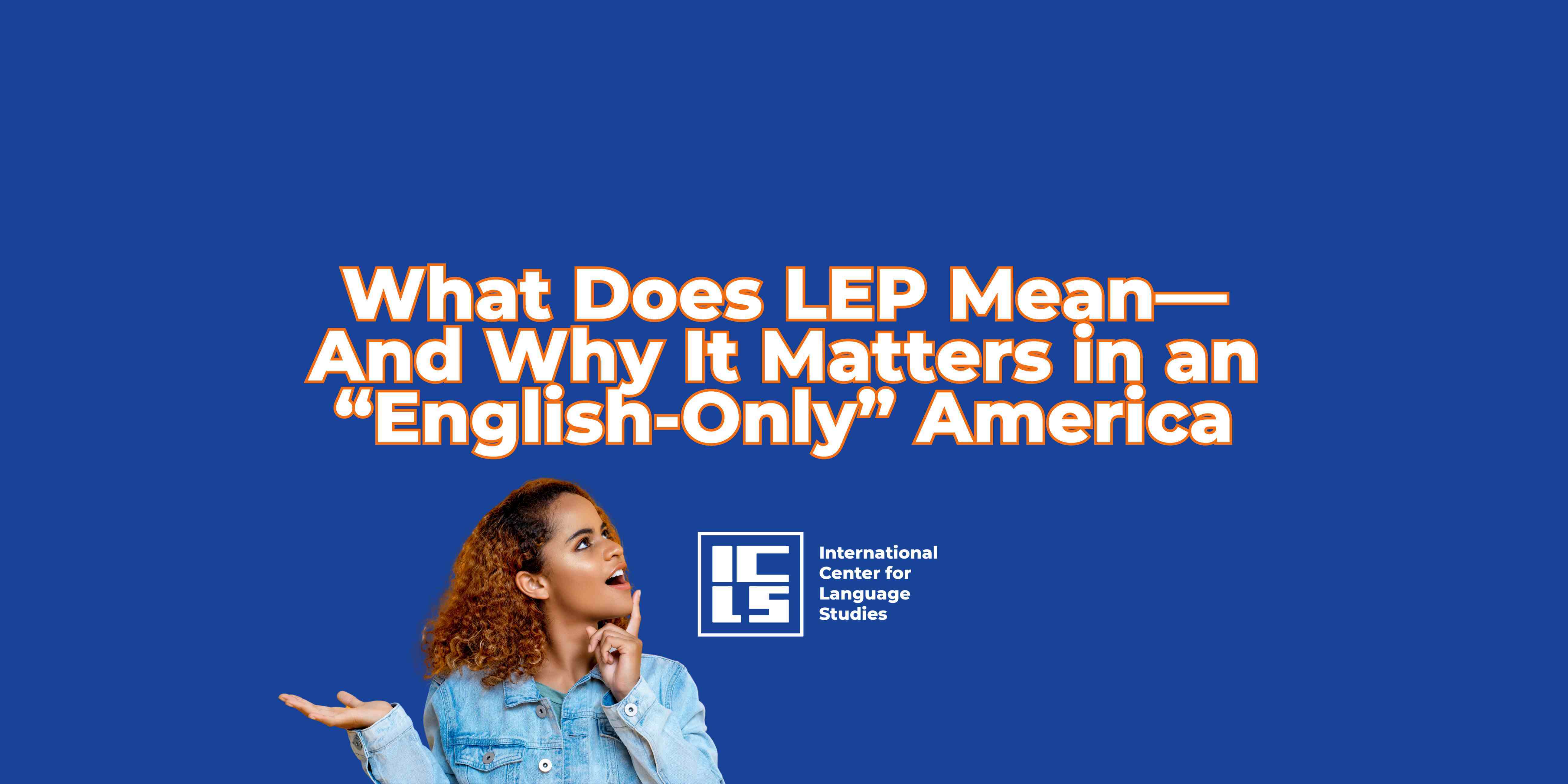What Does LEP Mean—And Why It Matters in an “English-Only” America

In today’s global workforce, language proficiency isn’t just a communication issue, it’s a business imperative.
More than 25 million people living in the United States are considered Limited English Proficient (LEP), meaning they do not speak English as their primary language and have a limited ability to read, write, speak, or understand it. These individuals are vital members of our communities and labor force—but without language support, they face serious barriers to participation and advancement.
What Does LEP Actually Mean?
Being LEP has nothing to do with intelligence or work ethic. It’s simply a language barrier. And it’s more common than many people realize.
According to the U.S. Census Bureau:
- Over 8% of the U.S. population is LEP.
- The most common native languages of populations with LEP in the US include Spanish, Chinese, Vietnamese, Korean, and Tagalog.
- States with the highest LEP populations include California, Texas, New York, Florida, and Illinois.
LEP individuals are working in manufacturing, construction, hospitality, healthcare, and education. They are parents, small business owners, and employees with enormous potential—if given the tools to succeed.
What’s Changing—and What Isn’t
Until recently, Executive Order 13166 required federal agencies and federally funded organizations to provide access to services in languages other than English-only. That mandate has now been rescinded, and a new Executive Order declares English the official language of America.
But here’s the bottom line: Title VI of the Civil Rights Act of 1964 still prohibits discrimination based on national origin—which includes language access. Organizations that receive federal funding still have a legal obligation to provide meaningful access for LEP individuals.
And for businesses? Supporting language access isn’t just the right thing to do—it’s a smart investment in employee retention, customer service, and workplace safety.
The Risks of Overlooking Language Access
For adult learners, limited English proficiency can mean:
- Missed safety protocols in the workplace
- Miscommunication with customers or colleagues
- Limited opportunities for advancement
- Lower engagement and retention
For employers, this can translate into reduced productivity, higher turnover, and legal liability.
The good news? These barriers can be addressed with targeted, culturally responsive English language training.
At ICLS, Language Learning Is Workforce Development
For 59 years, ICLS has been helping adults gain the English skills they need to thrive—in the workplace and beyond.
Whether you’re an individual looking to grow professionally or an employer seeking to upskill your workforce, our business english programs are designed for real-world impact. We offer:
- Flexible class schedules for working adults
- Custom corporate training solutions
- Instruction tailored to industry-specific language needs
- A supportive environment for learners from all backgrounds
We don’t just teach English. We build bridges—between people, communities, and opportunities.
For Employers and Adult Learners Alike—Let’s Break the Language Barrier Together!
- Are you an employer looking to invest in your team’s communication skills?
- Are you an adult learner ready to gain confidence in English for work or life?
Contact us at english@icls.edu or get a free consultation by calling 202-670-6904. You can also find our program offerings at https://www.icls.edu/english-language-programs. Empower your workforce. Empower yourself. Let’s get started!


